Daniela Coats, Founder of With Siblings, describes growing up as part of a foster care family.
Date published
30 October 2024
30 October 2024
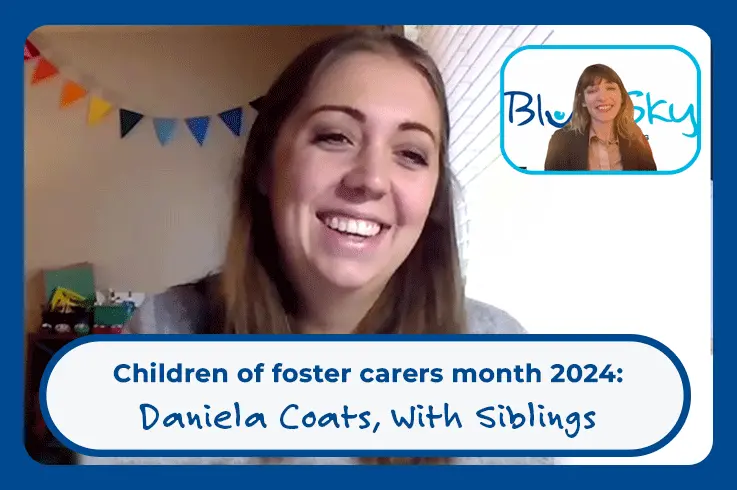
With Siblings is an organisation dedicated to supporting birth children in foster and adoptive families by equipping parents and professionals with training and resources. She is also the recent author of The Day Lily Turned (un)Invisible, which is a brilliant and warm-hearted resource for children and parents alike. You can watch as Daniela describes the story here.
Her own story of growing up as a child in a foster care family is truly fascinating, because it gives voice to a child’s perspective, whilst being enriched from her professional viewpoint. We touch on the experience of being in a foster care family as a child, fostering for adoption, foster family support and fostering training.
This interview has a particularly unexpected and glorious conclusion too!
Fostering stories
30 October 2024

Daniela Coats, With Siblings
Yes, I guess that's a good place to start. I’m Daniela Coats, I’m a Licensed Master Social Worker in Texas, USA.
With Siblings is an organization I founded that is really devoted to equipping foster adoptive parents and professionals who work in the field with training and resources so that they can then support birth kids and the families that they serve or in their own family.
So I don't work directly with kids in the With Siblings setting because I feel like it’s better to give parents the info, give professionals the info - because ultimately that's who's going to make the change anyway.
Daniela: With Siblings
I've been doing the work for nine-ish years or so, but With Siblings I started two years ago. I've got therapy that I do for birth kids. I've got With Siblings that I do fostering training and developing resources. I've written a children's book for birth kids. I have adjunct teaching at some universities. So, I do a lot of things. I wear many hats.
Daniela Coats, With Siblings
I was about seven or eight when my parents started the process of this foster adoption journey. They actually intended from the beginning to just adopt. That was their plan, to just match adoption through foster care. So, when I was about ten - I was ten - we had a set of three kids move in with us. I'm the eldest of three biological: so, myself and two younger brothers.
So, these were three additional kids coming in, making six kids. And it's a very long story, but we never ended up adopting them. It was a placement that ended up breaking down. It was very challenging. It was very unexpected. Not what our family expected. My parents weren't receiving the support that they needed and were asking for.
So, it was a really hard season because they'd been with us for a year. They ended up leaving our home. And as a kid, I went through a variety of emotions like grief and sadness, because I had come to see them as my siblings. We had been siblings for the past year. And the intention too was there, because there were times where later on our family fostered, and it wasn't necessarily as hard because we knew these kids are going to be returning home.
I experienced grief, I experienced anger.
So, in this case, it was really hard because the thought was, they're going to be staying. So that made it a little bit different. So I experienced grief, I experienced anger. You know: ‘why are these people who are supposed to be helping us, why are they not doing more to support our family when we've asked for help?’ Relief: it was really hard and it was a bit of relief that it was over.
Confusion: ‘why did it have to end this way?’ Shame: feeling like those in our community and those around us wouldn't understand; they would judge us for the way that it had turned out, thinking we had given up on kids or something like that. And so, having a lot of shame around that too.
I mean, that's just an example of the snippet of emotions that I felt as a birth kid when they left our family. And then we took a little bit of a break, but then we decided, you know what? – when I say ‘we’ it's my parents, but they involved us in that conversation always. We decided we'd foster. And so we did.
For the next eight or so years, we had sibling groups always coming into our house. And so ranged from - no one was ever older than me, but they were older than my younger two brothers at varying times. And so we had sibling groups come for the next eight or so years. Some would stay with us for a couple of months, some of them would stay with us for a couple of years. So that always varied. You know, that's how that works; there's changes and how long they stay. So we did that for a while, and honestly, my experiences as a bio kid got easier as I got older and I don't know what to attribute that to. I don't know if it's age, I don't know if it's maturity and perspective. I don't know if it's the fact that we were fostering not adopt ing. I don't really know what the reason was that it got easier for me. But it did. That being said, my parents though did end up adopting when I was 19 or so.
Yeah, I was 19 and that was actually really hard. There were a lot of the same feelings that came up when I was ten, came up again, and so that was very interesting, you know, cognitively I'm able to reason and say, ‘You don't need to be worried about this. This is going to be fine.’ But the feelings were still there, clearly. And so, I had to work through that and heal from some of those experiences.
Daniela Coats, With Siblings
I will say the most challenging season of it all was that first year because I also felt a lot of other things that we see in research that they often experience, which are things like being invisible - whether that's because new siblings coming in and there are just more people to take care of, or whether that's because of maybe more extreme behaviours that are happening: - who knows what the reason might be?
Just because there are more appointments or things to go to. But this feeling of invisibility, that's actually the theme, kind of the inspiration for the children’s book that I wrote, because I felt these things. I was all on board. I was not - my parents didn't make this decision and say, “this is what we're doing.” They said, “this is what we're thinking. What do you think?” And I was in. I was all in: ‘Yes, we should do this. This is important. Let's help kids.’ And yet when the kids came, it was like, ‘what?’ You know, it was just so not what I had pictured that it would be. And things like, we’re introducing them to people in our community, and all of a sudden people aren't noticing me anymore.
Friends, people I'd known my whole life, stopped saying hi to me and started saying hi to the new kids. And if they did say hi to me, it was because they were saying, “What's it like having so and so live with you? It must be so fun.” And so people stopped caring about me and stopped wondering how I was doing.
And that just compounded those feelings of invisibility. So, it's not just invisibility in the home, because in fact, my parents really did a pretty great job of helping us to adjust. They're human, so they made plenty of mistakes, but overall they did their best and I'm thankful for that. But it wasn't just in the home, these feelings of invisibility, it was also outside of the home. Feeling replaced, feeling concerned.
It wasn't just in the home, these feelings of invisibility, it was also outside of the home. Feeling replaced, feeling concerned.
Even just - I can remember my parents visited these kids before we met them, and I can remember my dad just telling us about the visit and saying, “Yeah, this kid threw the football to me and said, ‘Catch! Hey dad, catch!” And when my dad told me, I was like, ‘who’s this kid to call my dad, dad? He just met him for the first time! That’s not your dad that’s my dad!’
So just these kinds of things. But honestly, it didn't feel safe to say them as a kid, which is part of why I just appreciate that you are giving voice this month to kids, because whether they decide to be 100% transparent or not, they're still given the opportunity.
And I think that's just such a gift, because so often they're just not given the opportunity to share what it's like to be them and to know that there's other people out there who know what it's like to be them and have experienced the things… So that's just such a gift that you all are doing that this month. So, I thank you for that.
Daniela: With Siblings
The answer to that is a little bit complex. I think it would have on the front end absolutely been helpful for my parents to know what to expect from my experiences, because there were times when I shared, “This is hard, I hate this. This has ruined everything.” And instead of being met with understanding - this is a point that I told you my parents weren’t perfect, they made their own mistakes - my dad responded by scolding me like, “we're not going to say things like that.”
And I didn't even say it in front of the kids. But my dad has been able to reflect over years and tell me that he recognized the reason he responded like that to me, because he was feeling those same things and he couldn't accept those in himself.
So how can he accept that I was feeling that? So, that was why he responded in that way. But other times, I shared close family friends my frustrations and they reprimanded me and went and told my parents about it. And so I learned that it wasn't safe to really be honest about how I was feeling.
Again, my parents did grow and learn and, you know, those sorts of things…
They did involve us ongoing. ‘Should we take another placement? Should another kid come to live with us?’ And so they definitely involved us. It was not like them making decisions and us just having to go along with it.
This is one of my soapboxes right here. When kids are not given a voice, or worse still, when they're given a voice, but then parents still go in a different direction. Now we know as parents - I'm a parent; I'm actually an adoptive mom too. I've got kids by birth and adoption as well – so we know kids can't have everything they want, right?
If my kid comes to me and says, “I want a brownie for breakfast and chocolate milk and candy”, I'm like, “Absolutely not! Thanks - but no.”
If my kid comes to me and says, “I want a brownie for breakfast and chocolate milk and candy”, I'm like, “Absolutely not! Thanks - but no.”
But in the terms of fostering for adoption, if I say, ‘Hey, do you think we should open our home up, or hey, should we take another placement, or hey should we adopt this kid that's been living with us?’ And my kids say no and I move forward anyway, what am I saying about how their voice matters? What message does that communicate to them? And so I'm not suggesting that kids should hold all the cards, but if I give someone a voice and that voice has no agency, then what good is having a voice at all if it has no power?
And so that's one of the really important things I try to communicate to parents is:- I know that we can't let kids hold all of the cards and have all the power. But if foster care and adoption is something that happens to birth kids or children out of foster care, if that's something that happens to them instead of something they're a part of, then that's setting the stage for a lot of really big challenges ahead.
How do we navigate that? How does a parent help a kid navigate that if it feels like something that has happened to them, instead of something that they willingly a part of? And so, it's nuanced, it's tricky. I'm not going to pretend like there's a really clear, obvious answer, but that's something that I feel very strongly about in my work with foster adoptive families and their kids.
Daniela Coats, With Siblings
I sure have.
It's because I was working for an agency and I saw the need. It was right in my face. I know there's a need for foster parents or foster carers. I know you all say carers, sorry. And so, I saw the need. It was just constantly before me because that's what I did.
I trained foster parents, I recruited them and so how could I not? And so my husband and I talked about it and he was, you know, he was more in than I was because he didn't have the baggage, if you will. He didn't have the history to go along with it. And so we went through the process. The intention was just a foster, but then the kiddos we were fostering became available for adoption and we adopted all three of them.
And then shortly after that their fourth sibling was born. So we took them in and fostered them and adopted them. So our oldest four are actually adopted and then our younger two are our biological, our birth kids.
So we took them in and fostered them and adopted them. So our oldest four are actually adopted and then our younger two are our biological, our birth kids.
Daniela: With Siblings
Well, it's pretty wild because, you know, kid me would have been like, ‘No way. What are you doing? We're not doing this! We said that!’ But then there's just this really beautiful… redemption is not the right word - that's too strong of a word, but there's just really this beautiful peace to see that something that I so wanted to leave behind me as a kid has become a beautiful part of my life now.
And if I had not said - I think of all the places that we said yes. I said yes to my parents fostering me, yes to more kids coming into our home. Yes to becoming a social worker - like all these places of saying yes. Yes, to starting With Siblings; yes to working - all these things, all these opportunities to say yes.
And if we hadn't said yes, then I wouldn't have the life that I have. And it's such a weird thing because people will say, well, do you wish that things had been different? Well, sure. There's some things that I wish probably would have been different. But at the same time, if things had been different, if I didn't have the life that I had growing up, then who would I be today?
And so how could I wish away something that contributed so much to the work that I'm doing? My family? I don't even know how… I wouldn't even be able to reconcile that. So, I am thankful my experiences because they've made me who I am, through a variety of different ways.
Daniela: With Siblings
The one thing I'd like to make really clear is, you know, even on my social media, I put out a lot of content and it's not all trying to convince people to foster, right? It's not always trying to champion like, you should do this if you have kids by birth, too.
That's because there's plenty of that, I feel like. And so I'm trying to give the balanced educational piece as well. But if I were talking to someone who is considering it, I would say, line up your support, get all the information you can to understand the experiences of your kids and what to expect with all of these changes and adjustments, and then know that, yes, you can absolutely foster or you can absolutely adopt if you already have kids by birth, that is not going to disqualify you.
It's not going to get in the way. There might be challenges and there might be times where you need to take a break or you need to take a step back. But that in no way disqualifies you from helping kids who need it.
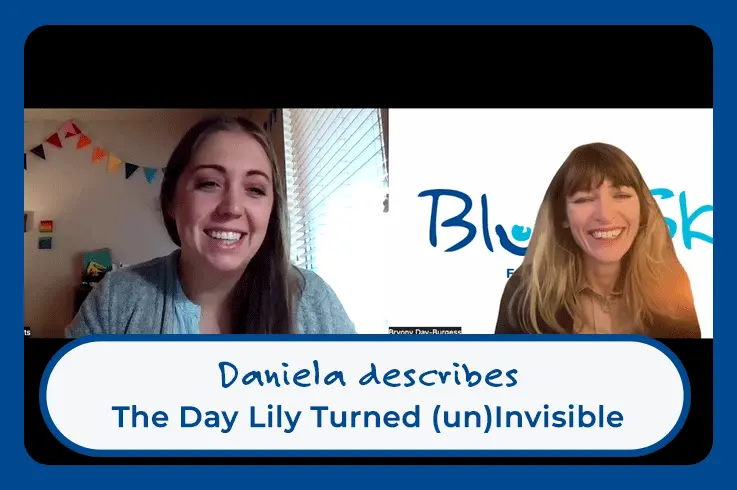
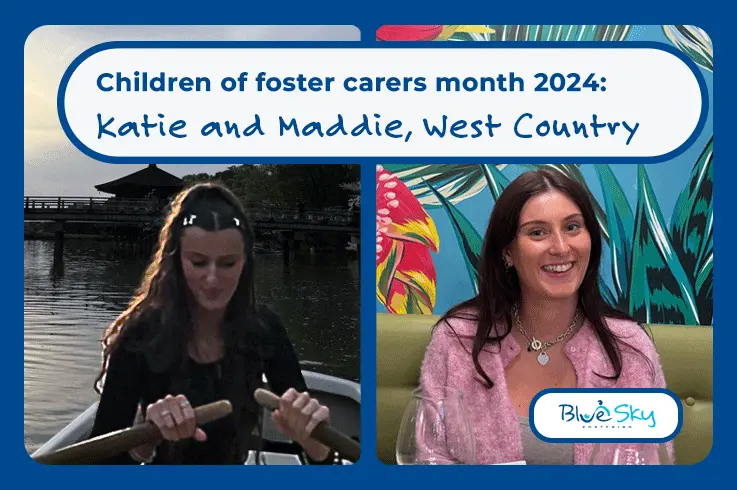
Maddie and Katie describe becoming part of a foster care family in 2018, aged 16 and 13 respectively.
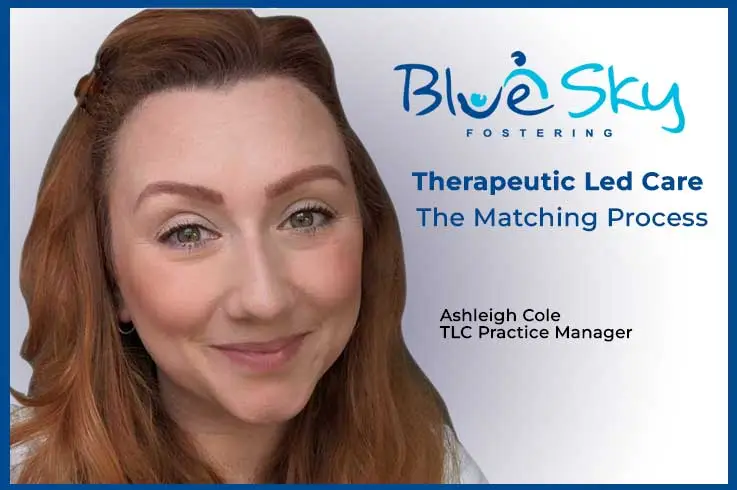
Ashleigh explains the emotion and deep level of thought that goes into creating a successful match between a foster family and a young person.
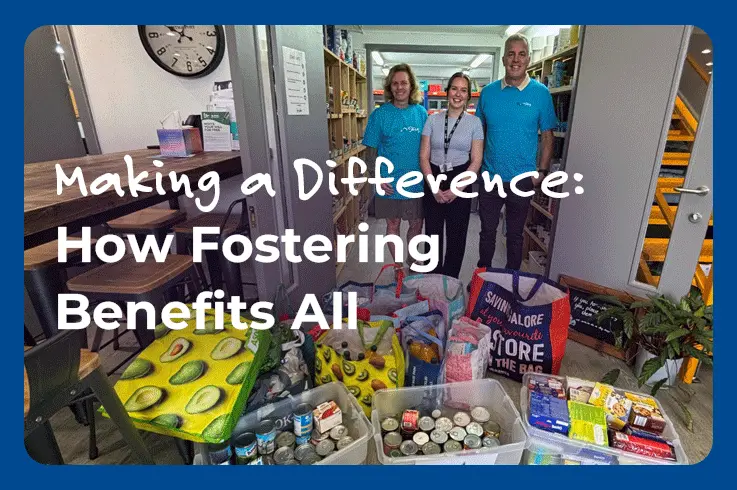
Read more about how we all strive to make a difference in our communities through fostering.
Call us now to speak with our dedicated and professional team.
Contact us
